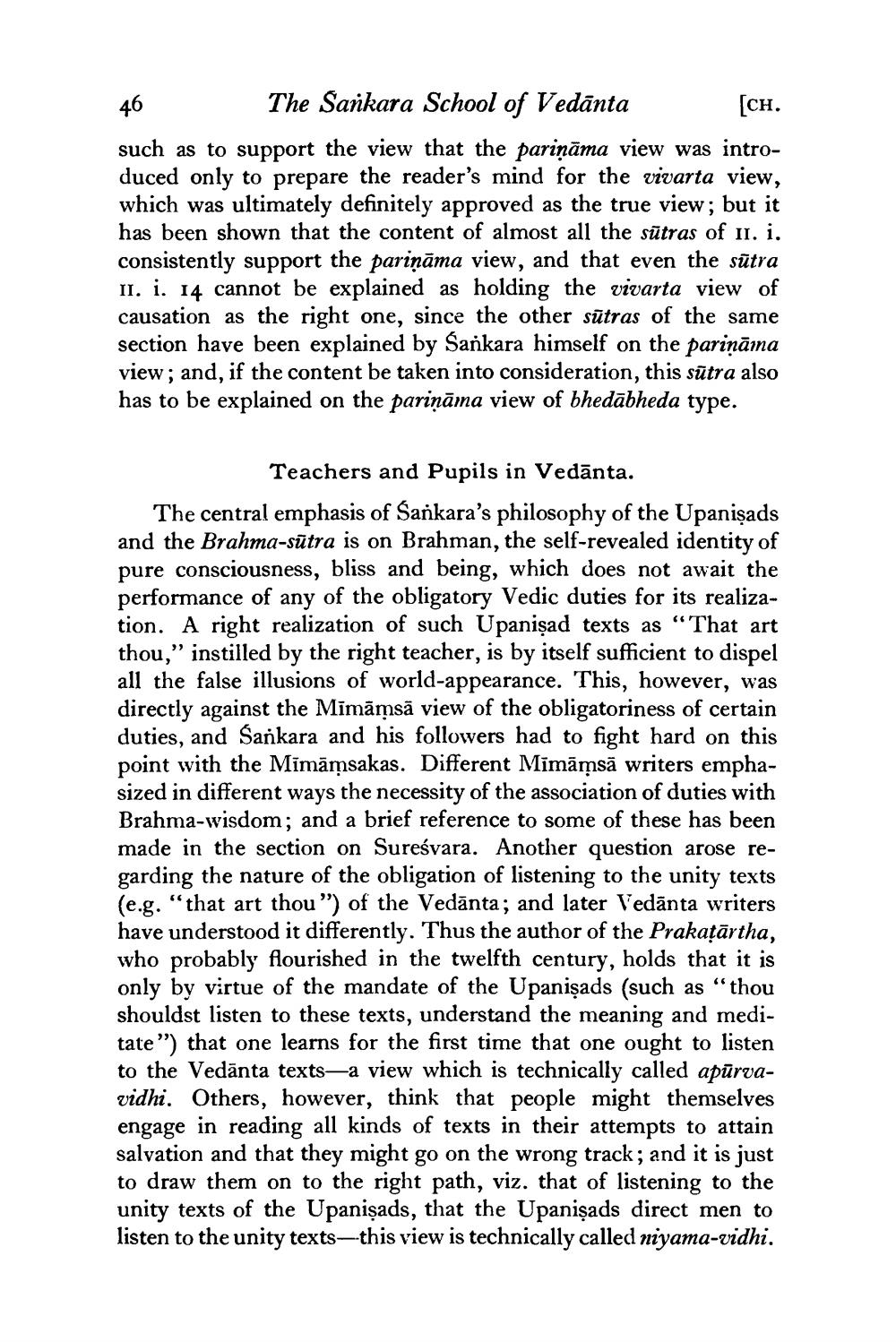________________
46
The Sankara School of Vedānta
[CH. such as to support the view that the pariņāma view was introduced only to prepare the reader's mind for the vivarta view, which was ultimately definitely approved as the true view; but it has been shown that the content of almost all the sūtras of 11. i. consistently support the pariņāma view, and that even the sūtra II. i. 14 cannot be explained as holding the vivarta view of causation as the right one, since the other sūtras of the same section have been explained by Sankara himself on the pariņāma view; and, if the content be taken into consideration, this sūtra also has to be explained on the pariņāma view of bhedābheda type.
Teachers and Pupils in Vedānta. The central emphasis of Sankara's philosophy of the Upanişads and the Brahma-sūtra is on Brahman, the self-revealed identity of pure consciousness, bliss and being, which does not await the performance of any of the obligatory Vedic duties for its realization. A right realization of such Upanişad texts as “That art thou," instilled by the right teacher, is by itself sufficient to dispel all the false illusions of world-appearance. This, however, was directly against the Mīmāmsā view of the obligatoriness of certain duties, and Sankara and his followers had to fight hard on this point with the Mimāmsakas. Different Mimāmsā writers emphasized in different ways the necessity of the association of duties with Brahma-wisdom; and a brief reference to some of these has been made in the section on Sureśvara. Another question arose regarding the nature of the obligation of listening to the unity texts (e.g. "that art thou”) of the Vedānta; and later Vedānta writers have understood it differently. Thus the author of the Prakațārtha, who probably flourished in the twelfth century, holds that it is only by virtue of the mandate of the Upanişads (such as “thou shouldst listen to these texts, understand the meaning and meditate')) that one learns for the first time that one ought to listen to the Vedānta texts—a view which is technically called apūrvavidhi. Others, however, think that people might themselves engage in reading all kinds of texts in their attempts to attain salvation and that they might go on the wrong track; and it is just to draw them on to the right path, viz. that of listening to the unity texts of the Upanisads, that the Upanisads direct men to listen to the unity texts--this view is technically called niyama-vidhi.




